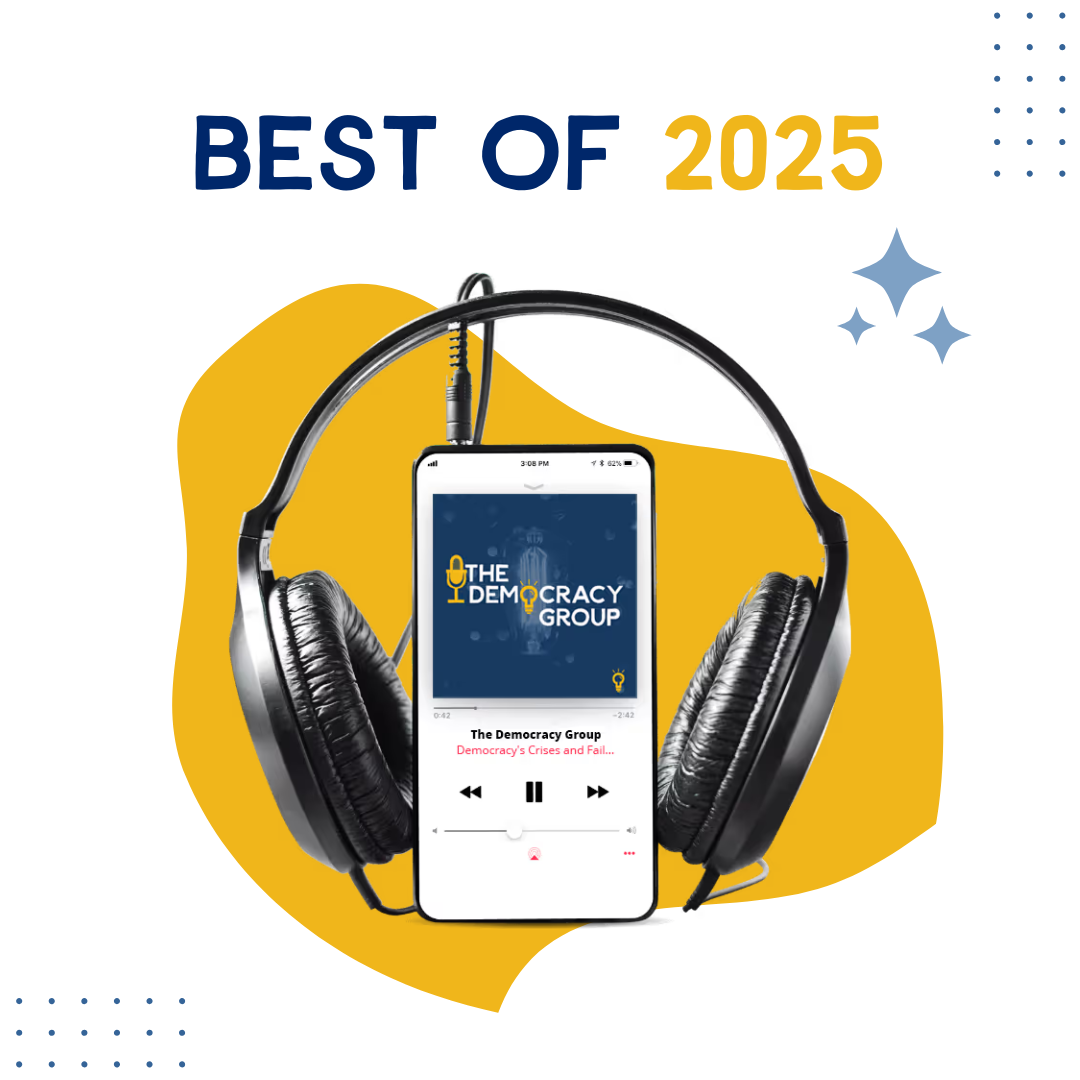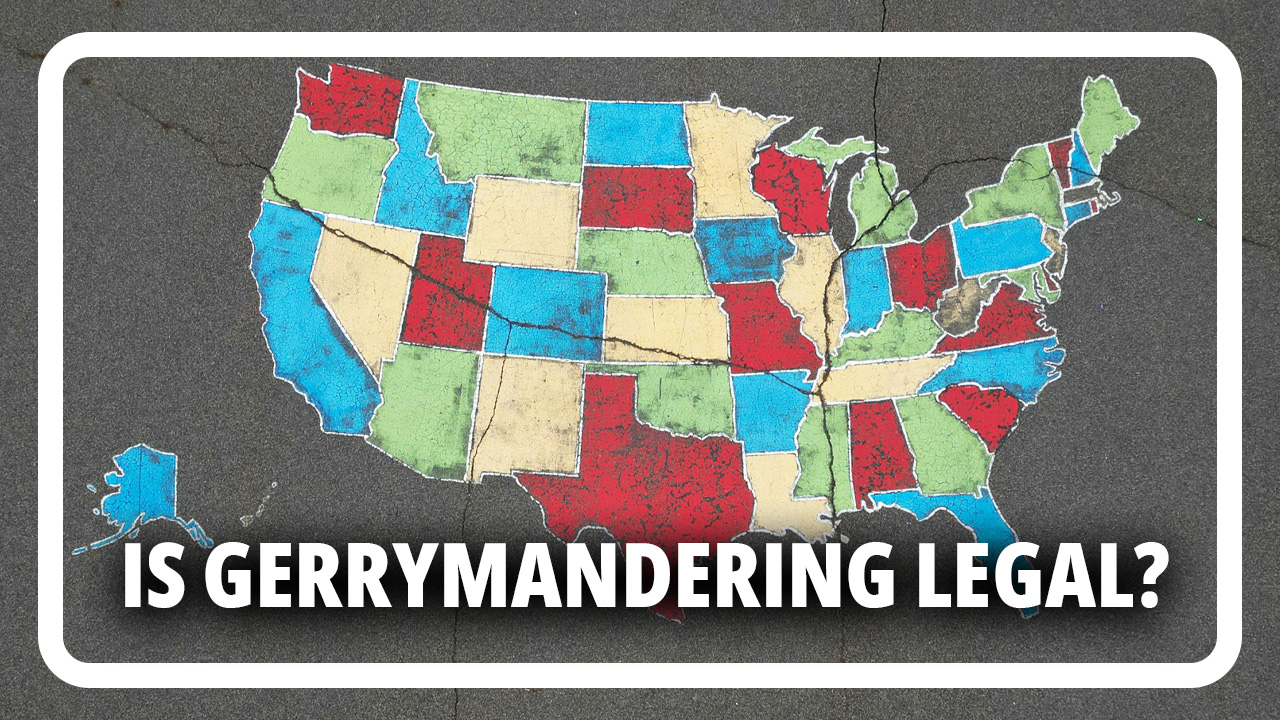
We're excited to welcome the newest addition to The Democracy Group: Democracy Fix — a new podcast by Issue One that highlights how organizations and individuals across the country are working to fix our political system. To officially welcome this amazing podcast to our network, we caught up with host Carah Ong Whaley about Democracy Fix, how the podcast aligns with Issue One's mission and false information.
Tell me about yourself and your work at Issue One.
Carah: I'm the director of election protection at Issue One, a cross-partisan organization working to strengthen our democracy, fix our broken political system, ensure everyone can engage in informed participation in our democracy and that our systems work for everyone. One of the things I'm primarily focused on in the short term is trying to address the many challenges facing our election systems, most importantly, the lack of public confidence in how elections work and who runs them because of so many falsehoods that have been spread about elections, especially since 2020 but even a bit before that.
Our systems are under some unprecedented attacks, but in many ways, they're also resilient. We're focusing on the good work being done by election officials who are trained professionals working tirelessly across the country to provide safe and secure elections this year and doing our best to help educate the public about how elections work, especially after votes are cast. Many people don't know what happens to their ballot after they cast it, and so we're trying to provide credible information and direct people to their state and local officials who are running elections.
How did Democracy Fix come about?
Carah: We started the podcast earlier this summer, and it's focused on Issue One's mission, which is to shed light on how organizations and individuals across the country are working to fix our political system and build an inclusive democracy that works for everyone. We are engaging in conversations about key issues that impact democracy, whether that is reforming Section 230 so that we can hold social media platforms accountable for the information environment, or if it's about spotlighting the work that's being done by secretaries of state and state and local election officials to strengthen our election system.
We're having thoughtful conversations, but it’s just putting a spotlight on the amazing work that is being done that we get to be a part of, and the broader movement building that is happening in all corners of the United States.
What are some challenges Democracy Fix and Issue One see this election year? Do you have plans to tackle them?
Carah: One of the major challenges that we are facing is the toxic information ecosystem and the spread of false information, including flat-out lies about elections, how they work, the people who run elections and even about the other candidates. We're trying to find ways to tone down and temper the rhetoric. One of the things we have put out this year is a community safety guide that's geared toward voters and folks in the public about how they might approach elections in their community.
There are unprecedented challenges in terms of efforts to confuse voters through disinformation about when, how and where to cast a ballot. So we're trying to direct people to their most credible sources of information through our Election Integrity Toolkit about reaching out to your state or local election official to make sure you have the right information about when, how and where to vote, that's really important. Don't be confused or misled by something you might see on social media, online or even being told accidentally, by someone.

This first episode is the perfect way to get into Democracy Fix and its wide range of political topics. Carah delves into some of the challenges mentioned above, such as misinformation and the toxic information ecosystem, providing detailed insights in this episode.
Subscribe to receive a biweekly collection of the hottest podcast episodes from the network, upcoming special events, expert features, and news from your favorite shows.
Subscribe to our NewsletterCarah is also the host of Politics is Everything, a podcast by the Center for Politics at University of Virginia. In an earlier conversation, she shared challenges from working on the podcast as well as tips for young voices looking to enter politics and the podcasting sphere.
Q: Tell me about yourself.
Carah: I am the academics program officer at the Center For Politics and I research political participation, especially focusing on young folks. I also help run our campus-wide voter education and engagement program.
Q: Tell me about Politics is Everything.
Carah: With Politics is Everything, our idea is to provide and share our original analysis on elections, politics, and more broadly about strengthening democracy in an audio format so we can engage with the general public and members of the media. We also really view it as a learning experience so students who take courses with me and the Center For Politics have the opportunity to research, find guests they think would be great for the podcasts and engage in discussions with them. It’s a great learning experience — it’s a great way to have conversations and dive into research and expertise with scholars and practitioners about what we can do to strengthen democracy.
Q: What got you involved in Politics is Everything?
Carah: It’s the opportunity to have conversations not just about the problems facing politics and our democracy but also what we can do to fix it. Leaning into the learning aspect, I had a professor who once said, “Politics is best learned in conversations,” and I think that resonates with many people. And so being able to do the research, read, and dive into different kinds of analyses and talk about it, to hear from different perspectives about what’s happening really motivates the podcast.
Q: Since the establishment of the podcast, what is a challenge you have overcome as an organization?
Carah: I think making sure what we’re addressing is relevant and getting others to tune in and making sure what we’re doing will have an impact. And I think that’s an ongoing challenge that we always have to reflect upon.
Making sure that when we’re coming up with ideas for who we have on (our podcast), we’re finding voices that aren’t traditionally heard is also important to us — that’s something that we really think about together as a team.
Q: Have you ever had any problems or challenges with a guest on your show?
Carah: We haven’t had that issue, to be honest… doesn’t mean that we won’t in the future. Part of it is doing a lot of research ahead of time about who we’re going to have and anticipating what they might say, the position they might have. For most episodes, we spend a lot of time researching and carefully crafting the questions.
I think being in this work and coming from a small-d democratic perspective, it’s OK to be challenged on things, and at least for us, we’re not trying to get people to say something we agree with. We’re in conversations to learn from that perspective and hopefully learn something new, and so I think coming in with the attitude that we’re here to learn also really helps.
Q: For someone who wants to get involved in politics or the podcasting sphere, where do you suggest they start?
The first thing I talk about when students are taking on a new podcasting project is to ask them, “What podcast do you listen to?” and “What makes it compelling.” So if you want to start something, go see what else is out there and figure out what your niche is, what makes you compelling and different than something that already exists. I think that’s really important.
And then figure out who’s your audience: Is it peers? Is it other students? Is it the broader public? And to think through what it is that makes your content and your overall podcast compelling.
Be willing to experiment, your first episode doesn’t need to be perfect — just start doing it and learn as you go. And be willing to learn and improve.
Subscribe to receive a biweekly collection of the hottest podcast episodes from the network, upcoming special events, expert features, and news from your favorite shows.
Subscribe to our Newsletter.png)
We kickstart the year with the exciting release of our fall 2025 fellows' podcasts and their inaugural episodes!
Read Post
The Democracy Group's Best Of 2025 series is back for another year!
Read Post
Is Gerrymandering Legal? Learn what gerrymandering is, how it shapes elections before votes are cast, and what citizens can do to protect democracy from unfair maps.
Read Post